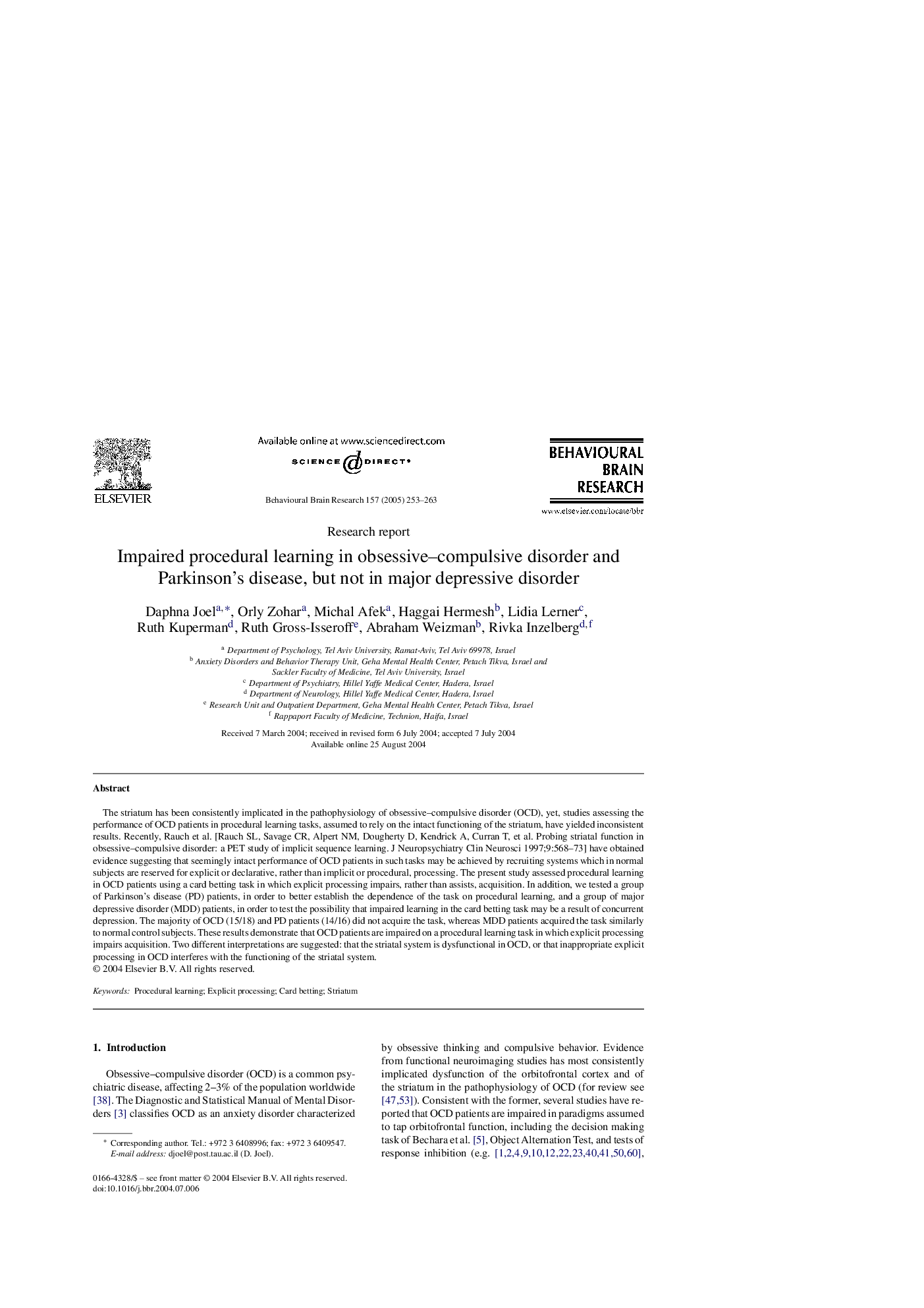| Article ID | Journal | Published Year | Pages | File Type |
|---|---|---|---|---|
| 9406847 | Behavioural Brain Research | 2005 | 11 Pages |
Abstract
The striatum has been consistently implicated in the pathophysiology of obsessive-compulsive disorder (OCD), yet, studies assessing the performance of OCD patients in procedural learning tasks, assumed to rely on the intact functioning of the striatum, have yielded inconsistent results. Recently, Rauch et al. [Rauch SL, Savage CR, Alpert NM, Dougherty D, Kendrick A, Curran T, et al. Probing striatal function in obsessive-compulsive disorder: a PET study of implicit sequence learning. J Neuropsychiatry Clin Neurosci 1997;9:568-73] have obtained evidence suggesting that seemingly intact performance of OCD patients in such tasks may be achieved by recruiting systems which in normal subjects are reserved for explicit or declarative, rather than implicit or procedural, processing. The present study assessed procedural learning in OCD patients using a card betting task in which explicit processing impairs, rather than assists, acquisition. In addition, we tested a group of Parkinson's disease (PD) patients, in order to better establish the dependence of the task on procedural learning, and a group of major depressive disorder (MDD) patients, in order to test the possibility that impaired learning in the card betting task may be a result of concurrent depression. The majority of OCD (15/18) and PD patients (14/16) did not acquire the task, whereas MDD patients acquired the task similarly to normal control subjects. These results demonstrate that OCD patients are impaired on a procedural learning task in which explicit processing impairs acquisition. Two different interpretations are suggested: that the striatal system is dysfunctional in OCD, or that inappropriate explicit processing in OCD interferes with the functioning of the striatal system.
Related Topics
Life Sciences
Neuroscience
Behavioral Neuroscience
Authors
Daphna Joel, Orly Zohar, Michal Afek, Haggai Hermesh, Lidia Lerner, Ruth Kuperman, Ruth Gross-Isseroff, Abraham Weizman, Rivka Inzelberg,
